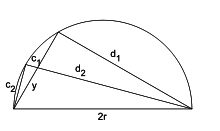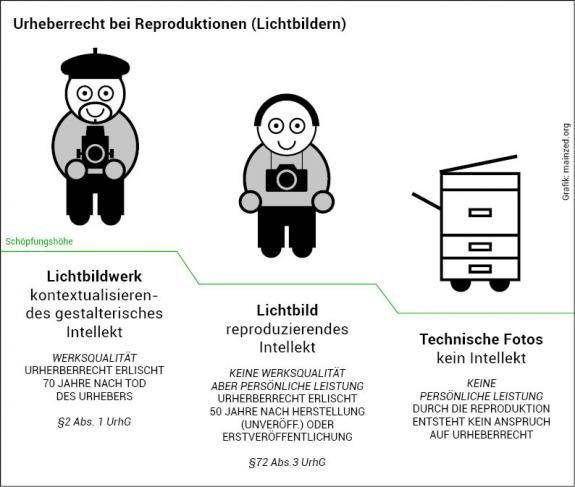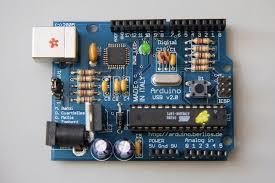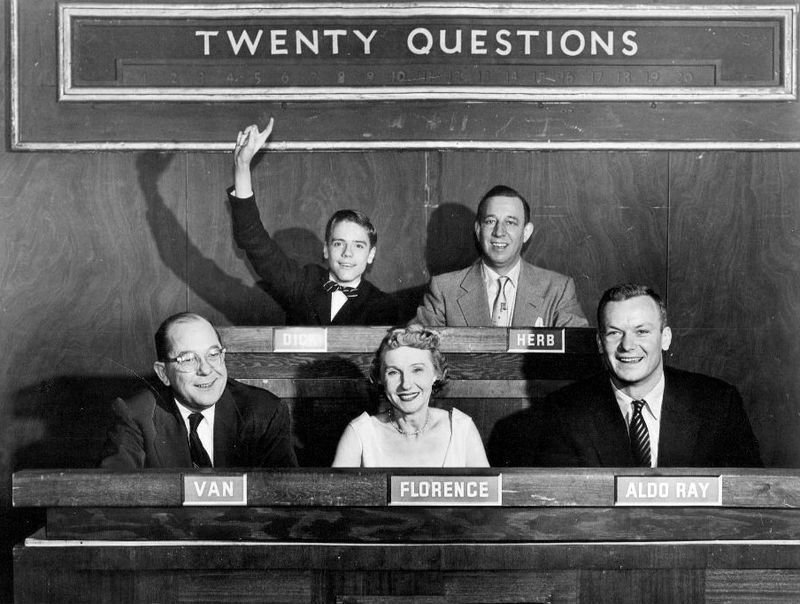Creative Commons Open For Business
Gwen Franck
@g_fra
"Creative Commons | Open for business" by Gwen Franck is licensed under a Creative Commons Attribution Share Alike 4.0 International License, except otherwise noted


Contents:
Part 1: Creative Commons Licenses
Part 2: "Open For Business"
Open Licenses
- What is it?
- Why should I care?
- How do CC licenses work?
- How to license your own work, how to cite openly licensed works
- Where to find openly licensed content
- Keep in mind!
What is an open license?
(Creative Commons or other)
"Some rights reserved"

Why should I apply an open license?
What's wrong with traditional copyright?
- lack of uniform rules
- tendence towards maximalisation: very long protection time for (c) works
- net neutrality debate
- Digital Rights Management
- 'status unclear: public domain works remain de facto inaccessible
- patent trolling
It has become very easy to make your work openly available online and to get access to other people's works - but it has also become much easier for third parties to prevent access (on purpose or accidentally)
It's not because something is only 'one click away' that it is (legally) accessible or re-usable



Open licenses : 'a patch for a broken copyright system'

- make clear from the start what can and cannot be done with your work ('some rights reserved')
- remove legal uncertainty for the (re)user
- removes the necessity to arrange permissions on individual basis
- have a legal basis to react against copyright infringement
If you are the rights holder, applying an open license allows you to:
If you make it clear from the start what can be done with your work ...
- access
- attribution
- re-use
- modification
- commercial use
- ...
... others can build upon your work without fear of violating your author rights.





Open Licenses: not only Creative Commons
- Open Database License (ODbL) https://opendatacommons.org/
- GNU General Public License (GNU GPL or GPL) https://www.gnu.org/licenses/gpl.html
- European Union Public Licence (EUPL) https://joinup.ec.europa.eu/collection/eupl/eupl-guidelines-faq-infographics
- Mozilla Public License (MPL) https://www.mozilla.org/en-US/MPL/
- CERN Open Hardware Licence (OHL or CERN OHL) https://www.ohwr.org/projects/cernohl/wiki
- ...
Examples

- Beware of 'license proliferation': many different licenses can complicate interoperability
- not every open license is applicable everywhere
- not every licence is suitable for every content type
- Text and images: CC, CC0, ...
- Databases: CC BY, CC0, ODBL, ...
- Software: GNU, ...
- Hardware: CERN, TAPR, ...
How does CC work?


A Creative Commons license (or public domain tool) is universally recognisable, juridically sound, easily applicable and leaves the user in no doubt about the intentions of the author.
CC licenses let you easily change your copyright terms from the default of “all rights reserved” to “some rights reserved.”
4 building blocks




Can be combined into 6 licenses
Three layers:
- Machine Readable
- Human Readable
- Legal Code

Legal Code

- juridical basis
- "version 4.0"
- created by CC Legal Team + input from communities worldwide
- available in your language
- universally applicable
Human Readable
- summary or 'deed'
- this is what you link to
- available in your language

Machine Readable
- make it easy for "the Web" to know when a work is available under a Creative Commons license
- important for platforms and search engines



-
You are free to:
-
Share — copy and redistribute the material in any medium or format
-
Adapt — remix, transform, and build upon the material
-
for any purpose, even commercially
-
-
Under the following terms:
-
Attribution — You must give appropriate credit, provide a link to the license, and indicate if changes were made
-
You may do so in any reasonable manner, but not in any way that suggests the licensor endorses you or your use.
-

- Same conditions as CC BY, plus:
-
ShareAlike — If you remix, transform, or build upon the material, you must distribute your contributions under the same license as the original.
-

-
Same conditions as CC BY, plus:
- NonCommercial — You may not use the material for commercial purposes

-
Same conditions as CC BY, plus:
- NoDerivatives — If you remix, transform, or build upon the material, you may not distribute the modified material.







Two additional legal tools






Text
Adding a CC license to your work


Make it easy for others to cite you

The easier you make it for somebody to figure out their re-use rights, the more likely it is that they will respect them!
Be clear and unambiguous when creating and displaying your work's metadata (i.e. the information about your work)
Use the CC logo and link to the human-readable license text
Make sure people can reach you or the platform when in doubt
Citing CC licensed content
a little common sense goes a long way!
- attribution (BY) is obligatory: name of the author and name of the work (if available)
- link to the original source
- mention and link to the license/(c) status (You don't need to credit Public Domain works)
- mention if you remix/adapt/modify/translate, link to the original version of the work

Accident ! by clement127 found on Flickr (CC BY-NC-ND 4.0)
https://creativecommons.org/licenses/by-nc-nd/4.0/
www.flickr.com/photos/clement127/
Title
Author
Source
License

- "Seagull", Instagram
- "Seagull at Niagara Falls", (c) Gwen Franck
- "Seagull at Niagara Falls", (c) instagram
- "Seagull at Niagara Falls", by Gwen Franck
- "Seagull at Niagara Falls", Gwen Franck, CC BY
"Seagull at Niagara Falls", by Gwen Franck, CC BY 4.0

- Picture found on Flickr
- 'I am so confused' (c) Creative Commons
- 'I am so confused' by Ian Sane
- CC BY 2.0
- 'I am so confused' (c) Flickr
Finding openly licensed content
- https://ccsearch.creativecommons.org/
- Use the 'advanced' settings of your browser
- Use the 'filter' function on your platform
- Wikimedia Commons, TED, DOAJ, Soundcloud, ...



"Caution Tape" by Eugene Zemlyanskiy on Flickr CC BY 2.0
- An open license is a tool, not a silver bullet: It cannot fix bad science.
- Correct citation is essential to conduct scientific research
- Incorrect citation and use of open licensed materials is not only bad science, it is a copyright infringement
- If you license your own work openly, you have a legal basis to demand that you are cited correctly
Some reuses are allowed without license
- there are plenty of exceptions on existing copyright laws for research and development and educational purposes
- a license then only provides the benefit of clarity for the end-user, but it has no juridical value
Don't forget:
CC licenses are operative only when applied to material in which a copyright exists, and even then only when a particular use would otherwise not be permitted by copyright.
Using and citing public domain works
- Status can be indicated explicitly (CC0, CC PD)
-
Can be assumed (although this requires a certain level of knowledge) when
- the (c) protection term has ended
- the material is not copyrightable in the first place
- useful tool: http://outofcopyright.eu/
- Beware of copyfraud: do not 'close' materials that are in the public domain
-
You are not legally obligated to cite works in the Public domain but:
- It's nice to do so in any case!
- For scientific research: reusing materials, regardless of copyright status, without proper attribution is bad science

Cooper-Hewitt's Collection Database, licensed under CC0 on Github
"In order to reduce any uncertainty about the 'legitimate uses' of this dataset, Cooper-Hewitt has licensed this release under a Creative Commons Zero (CC0) license. This license is the most permissive available and allows for all types of reuse"
You can use and reuse all elements in this dataset without worrying about attribution or other restrictions, as it is in the Public Domain


Public Domain
("the commons")









What can and cannot be copyrighted can differ per jurisdiction!
- We need to talk about databases (but not now)
- Copyright 'treshold' can vary
- Copyright reform debate (https://www.communia-association.org/)

PART 2:
Open For Business
What does it mean to put work in the commons?
Use the full potential of the internet by making your work as accessible as possible
Find, access and re-use openly available works
In the digital commons!
"Traditional" copyright
- automatically
- "protects" for x amount of time
- conditions (variable)
- exceptions possible
- current laws: not adapted to digital age
Open Licensing
- rights holder determines beforehand what can and cannot happen with the work
- aim: facilitating re-use
- conditions may apply
- no need to ask permission for re-use (when conditions are respected)
Create
- make your work (and its metadata) online available
- use open formats and standards
- use an open license
- be clear and unambiguous about re-use conditions
- cite and acknowledge your own sources
- make use of the augmented versions of your work

Access
- cite and acknowledge the creator
- respect license conditions
- make any augmentations or adaptations openly available
- look for open source alternatives
- support designers and makers financially if possible

Re-use
- permission needed when all rights reserved
- unconditional when in the public domain
- conditional when the work is openly licensed
- grey zone for works that have no known ownership but are 'available'

Going Open? Not for me!
aka common misunderstandings about the digital commons
I am not giving away my work for free!

Somebody else will steal my idea!

I want to control re-use of my work

It is not safe, I'm the only one who knows how my design works

- It is not an 'all or nothing' situation:
- some parts of your business can be (c) based while other parts can be openly licensed
- content
- workflow
- business model
- different types of open licenses regulating
- commercial re-use
- modification
- 'copyleft'
- flexible in time: open licensing the original content is irrevocable, but as rightsholder you can always create a 'closed' version or service on top
- some parts of your business can be (c) based while other parts can be openly licensed
Advantages of going open
VISIBILITY
make your work known globally
timestamp
see what happens with your work
generate traffic

BOOST INNOVATION
open = easy and quick access for the brightest minds around the world
'first mover advantage'

MAKE MONEY
first mover advantage
new forms of revenue
boost research and development
increase traffic

DESIGN GLOBAL - PRODUCE LOCAL
benefit from worldwide creativity
support local makers

IMPROVE PORTFOLIO
take advantage of global input and re-use of your work
connect with likeminded people worldwide

SAVE MONEY
transaction fees
promotion/marketing
production costs
market research

COMMUNITY BENEFITS
going open makes it easier for like-minded communities accross the globe to connect and share their resources

SOCIETY BENEFITS
providing quick and free access can boost research into societal issues
level the playing field
'corporate social responsibility'

EXAMPLES
Blender
- 3D creation suite
- openly licensed, all types of reuse allowed for free
- community of users and developers improve the product
- accept donations


Metropolitan Museum of Art
All public domain works and all metadata (both PD works and works under (c) are made available under a CC0 license
Increase in downloads: 64%
Increase in Wikipedia articles using Met content: 500%
Wikimedia
- openly licensed and public domain content only
- re-use: free but conditional: attribution and open licensing (when original is (c) )

The Noun Project
- Icons and logo's
- Free reuse: attribution required
- Freemium model - unlimited royalty free access
- Creator of icon retains copyright

Freesewing
- an open source platform for made-to-measure sewing patterns
- all patterns, docs, API are openly available and adaptable

Wikihouse
- (a.o.) tool library for open source house designs

Android
- largest mobile operating system in the world
- source code is open, even for competitors

Arduino
- microcontrollers
- open source hardware and software
- readymades are available commercially

https://www.arduino.cc
Image: By Matt Biddulph (Flickr: A hand-soldered Arduino) [CC BY-SA 2.0 (https://creativecommons.org/licenses/by-sa/2.0)], via Wikimedia Commons
OpenDesk
- locally made furniture based on digitally available open designs
- platform, maker and designer get fee when a product gets made

Roden
- bike designs
- can be adapted to your own needs
- available under a CC BY-SA 4.0 license
- adaptations must be shared under the same license

Farmhack
- (a.o.) tool library for open source farming tools

TESLA
- TESLA puts its car designs as open source and files as little patents as possible (although some say this is not true)
- Elon Musk cites environmental concerns - Tesla can't keep up production in order to ensure


Exercise

interesting links
- All icons: The Noun Project
- Background image: http://atfab.co/oswunderkammer/
- License citation tool: https://lizenzhinweisgenerator.de/?lang=en
- All other images not credited on the slides: Wikimedia Commons
- Interesting reads:
- http://opendefinition.org
- http://creativecommons.org
- All Wikipedia articles related to Open Source
- https://stateof.creativecommons.org/
- John Oliver on net neutrality (check YouTube)
- http://danskdesigncenter.dk/en/understand-open-source-manufacturing-30-minutes
•Good exercise: http://businessmodelalchemist.com/2010/01/mapping-business-models-a-knowledge-game.html
•The Business Model Canvas book: Alexander Osterwalder and Yves Pigneur, “Business Model Generation”, Wiley (2010) https://strategyzer.com/books/business-model-generation . More on ‘open’ business models: Paul Stacey “What is an Open Business Model and How Can You Generate Revenue?“, Medium (2016) https://medium.com/made-with-creative-commons/what-is-an-open-business-model-and-how-can-you-generate-revenue-5854d2659b15
•The Open Business Model Canvas: Open Business Model Canvas by Paul Stacey, Creative Commons - based on Business Model Canvas Poster designed by: Business Model Foundry AG CC BY-SA 3.0 https://docs.google.com/drawings/d/1QOIDa2qak7wZSSOa4Wv6qVMO77IwkKHN7CYyq0wHivs/edit
•The original Business Model Canvas is available under a CC BY-SA 3.0 license. https://strategyzer.com/canvas/business-model-canvas
Contact
gwenfranckgcv@gmail.com
@g_fra
skype: gwen.franck1
"Creative Commons | Open for business" by Gwen Franck is licensed under a Creative Commons Attribution Share Alike 4.0 International License, except otherwise noted

Creative Commons | Open Business Models
By gwen
Creative Commons | Open Business Models
Presentation delivered at University of Latvia on May 16th 2018
- 5,177




